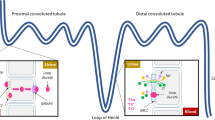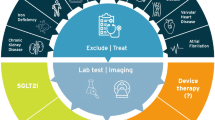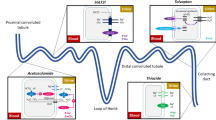Abstract
Background
Postoperative new-onset atrial fibrillation (AF) remains the most common complication of coronary artery bypass graft surgery. Postoperative AF carries the risk of hemodynamic instability, increases the risk of thromboembolic events, and has a significant economic impact. Current guidelines recommend treatment with β-blockers to prevent AF; information, however, is limited regarding the relative efficacy of β-blocking agents. Carvedilol is a non-selective adrenergic blocker with anti-inflammatory, antioxidant, and multiple cationic channel blocking properties. These unique properties of carvedilol have generated interest in its use as a prophylaxis for postoperative AF.
Materials and methods
We hypothesize that carvedilol will be more effective than metoprolol, a conventional β1-selective antagonist, in suppressing newly developed AF following off-pump coronary artery bypass (OPCAB) surgery. We have designed the Carvedilol or Metoprolol Post-Revascularization Atrial Fibrillation Controlled Trial (COMPACT) to test our hypothesis in a multi-center, open-label, randomized, and controlled trial. A total of at least 650 patients will be randomized to receive an initial oral dose of either 5 mg of carvedilol twice per day or 20 mg of metoprolol tartrate three times per day following surgery. The dose of each β-blocker will be increased to the maximum tolerated dose. The primary endpoint is the incidence of new-onset AF during the first 7 days after surgery.
Conclusions
The COMPACT is the first multi-center, randomized, controlled trial to directly compare two different β-blockers in patients following surgical coronary revascularization. Results of this trial will help to guide physicians in choosing appropriate medications following OPCAB surgery.
Similar content being viewed by others
References
Ommen SR, Odell JA, Stanton MS. Atrial arrhythmias after cardiothoracic surgery. [published erratum appears in N Engl J Med 1997 Jul 17;337(3):209]. N Engl J Med 1997;336:1429–34.
Aranki SF, Shaw DP, Adams DH, et al. Predictors of atrial fibrillation after coronary artery surgery. Current trends and impact on hospital resources. Circulation 1996;94:390–7.
Mathew JP, Fontes ML, Tudor IC, et al. Investigators of the Ischemia Research and Education Foundation; Multicenter Study of Perioperative Ischemia Research Group. A multicenter risk index for atrial fibrillation after cardiac surgery. JAMA 2004;291:1720–9.
Elahi M, Hadjinikolaou L, Galinanes M. Incidence and clinical consequences of atrial fibrillation within 1 year of first-time isolated coronary bypass surgery. Circulation 2003;108 Suppl 1:II207–12.
Villareal RP, Hariharan R, Liu BC, et al. Postoperative atrial fibrillation and mortality after coronary artery bypass surgery. J Am Coll Cardiol 2004;43:742–8.
Puskas JD, Williams WH, Mahoney EM, et al. Off-pump vs conventional coronary artery bypass grafting: early and 1-year graft patency, cost, and quality-of-life outcomes: a randomized trial. JAMA 2004;291:1841–9.
Legare JF, Buth KJ, King S, et al. Coronary bypass surgery performed off pump does not result in lower in-hospital morbidity than coronary artery bypass grafting performed on pump. Circulation 2004;109:887–92.
Straka Z, Widimsky P, Jirasek K, et al. Off-pump versus on-pump coronary surgery: final results from a prospective randomized study PRAGUE-4. Ann Thorac Surg 2004;77:789–93.
Biglioli P, Cannata A, Alamanni F, et al. Biological effects of off-pump vs. on-pump coronary artery surgery: focus on inflammation, hemostasis and oxidative stress. Eur J Cardiothorac Surg 2003;24:260–9.
Eagle KA, Guyton RA, Davidoff R, et al. American Heart Association. ACC/AHA 2004 guideline update for coronary artery bypass graft surgery: a report of the American College of Cardiology/American Heart Association Task Force on Practice Guidelines (Committee to Update the 1999 Guidelines for Coronary Artery Bypass Graft Surgery). Circulation 2004;110:e340–437.
McBride BF, White CM. Critical differences among beta-adrenoreceptor antagonists in myocardial failure: debating the MERIT of COMET. J Clin Pharmacol 2005;45:6–24.
Stroe AF, Gheorghiade M. Carvedilol: beta-blockade and beyond. Rev Cardiovasc Med 2004;5 Suppl 1:S18–27.
Aviles RJ, Martin DO, Apperson-Hansen C, et al. Inflammation as a risk factor for atrial fibrillation. Circulation 2003;108:3006–10.
Mihm MJ, Yu F, Carnes CA, et al. Impaired myofibrillar energetics and oxidative injury during human atrial fibrillation. Circulation 2001;104:174–80.
Gaudino M, Andreotti F, Zamparelli R, et al. The −174G/C interleukin-6 polymorphism influences postoperative interleukin-6 levels and postoperative atrial fibrillation. Is atrial fibrillation an inflammatory complication? Circulation 2003;108 Suppl 1:II195–9.
Carnes CA, Chung MK, Nakayama T, et al. Ascorbate attenuates atrial pacing-induced peroxynitrite formation and electrical remodeling and decreases the incidence of postoperative atrial fibrillation. Circ Res 2001;89:E32–8.
Daoud EG, Strickberger SA, Man KC, et al. Preoperative amiodarone as prophylaxis against atrial fibrillation after heart surgery. N Engl J Med 1997;337:1785–91.
Merritt JC, Niebauer M, Tarakji K, Hammer D, Mills RM. Comparison of effectiveness of carvedilol versus metoprolol or atenolol for atrial fibrillation appearing after coronary artery bypass grafting or cardiac valve operation. Am J Cardiol 2003;92:735–6.
Sandberg A, Blomqvist I, Jonsson UE, Lundborg P. Pharmacokinetic and pharmacodynamic properties of a new controlled-release formulation of metoprolol: a comparison with conventional tablets. Eur J Clin Pharmacol 1988;33 Suppl:S9–14.
de Mey C, Breithaupt K, Schloos J, Neugebauer G, Palm D, Belz GG. Dose-effect and pharmacokinetic–pharmacodynamic relationships of the beta 1-adrenergic receptor blocking properties of various doses of carvedilol in healthy humans. Clin Pharmacol Ther 1994;55:329–37.
Butler J, Arbogast PG, BeLue R, et al. Outpatient adherence to beta-blocker therapy after acute myocardial infarction. J Am Coll Cardiol 2002;40:1589–95.
Shepherd AM. A clinical pharmacologist's response to Dr Milton Packer's perspective on the results of the COMET trial. J Card Fail 2003;9:454–7.
Hjalmarson A, Waagstein F. COMET: a proposed mechanism of action to explain the results and concerns about dose. Lancet 2003;362:1077.
Fuster V, Ryden LE, Asinger RW, et al. ACC/AHA/ESC Guidelines for the Management of Patients With Atrial Fibrillation: Executive Summary A Report of the American College of Cardiology/American Heart Association Task Force on Practice Guidelines and the European Society of Cardiology Committee for Practice Guidelines and Policy Conferences (Committee to Develop Guidelines for the Management of Patients With Atrial Fibrillation) Developed in Collaboration With the North American Society of Pacing and Electrophysiology. Circulation 2001;104:2118–50.
Hosmer DW, Lemeshow S. Applied logistic regression, 2nd ed. London: Wiley; 2000.
Author information
Authors and Affiliations
Corresponding author
Rights and permissions
About this article
Cite this article
Kamei, M., Morita, S., Hayashi, Y. et al. Carvedilol versus Metoprolol for the Prevention of Atrial Fibrillation After Off-Pump Coronary Bypass Surgery: Rationale and Design of the Carvedilol or Metoprolol Post-Revascularization Atrial Fibrillation Controlled Trial (COMPACT). Cardiovasc Drugs Ther 20, 219–227 (2006). https://doi.org/10.1007/s10557-006-8375-7
Published:
Issue Date:
DOI: https://doi.org/10.1007/s10557-006-8375-7




